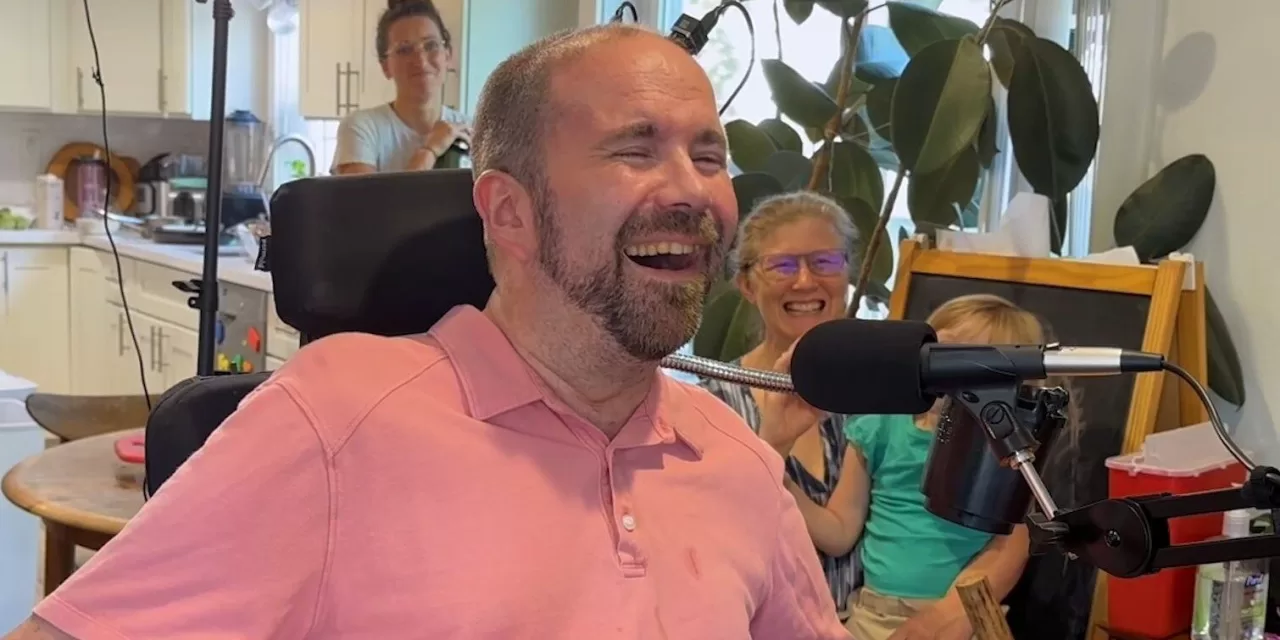UC Davis Health has unveiled a groundbreaking brain-computer interface (BCI) that has enabled a man with amyotrophic lateral sclerosis (ALS) to communicate with unprecedented clarity. This new technology, detailed in a recent study published in the New England Journal of Medicine, is described as the most accurate speech neuroprosthesis ever developed, achieving up to 97% accuracy in translating brain signals into speech.
ALS, also known as Lou Gehrig’s disease, progressively impairs nerve cells responsible for muscle control, eventually leading to loss of speech. The newly developed BCI offers a lifeline for individuals with severe speech impairments due to neurological conditions like ALS. By interpreting brain signals associated with attempted speech, the device converts these signals into text that is then spoken aloud by a computer.
The innovation comes from the UC Davis Neuroprosthetics Lab, led by neurosurgeon David Brandman and neuroscientist Sergey Stavisky. The research involved implanting sensors in the brain of 45-year-old Casey Harrell, who has advanced ALS and severe difficulty with speech. The device, implanted in July 2023, uses four microelectrode arrays placed in the left precentral gyrus—a brain region crucial for speech coordination.
Stavisky explains that the system detects the brain’s efforts to move muscles and talk, translating these patterns into phonemes and then into comprehensible speech. This real-time decoding allows Harrell to communicate effectively in both prompted and spontaneous conversational settings.
Key Developments:
- High Accuracy: Initial tests showed a remarkable 99.6% word accuracy with a 50-word vocabulary. As training progressed, the system expanded its vocabulary to 125,000 words, maintaining a 90.2% accuracy rate with just 1.4 additional hours of data collection. Continued refinement has achieved a consistent 97.5% accuracy.
- Emotional Impact: The technology has had a profound emotional effect on Harrell and his family. The first successful use of the system brought Harrell to tears as he saw his intended words appear on the screen in real time, spoken in a voice resembling his own before the onset of ALS.
- Extended Use: Over 32 weeks, Harrell participated in 84 data collection sessions, using the BCI for over 248 hours in personal and video chat conversations. The ability to communicate has been described as transformative, alleviating the frustration and isolation often experienced by individuals with severe speech impairments.
Looking Forward: The study underscores the potential of this BCI technology to restore communication for those who have lost the ability to speak due to paralysis or other neurological conditions. Lead author Nicholas Card, a postdoctoral scholar at UC Davis, highlights the significant achievement in providing a means for patients like Harrell to reconnect with their loved ones and reintegrate into social life.
BrainGate trial sponsor-investigator Leigh Hochberg, a neurologist at Massachusetts General Hospital, notes the dedication of participants like Harrell who contribute to the advancement of such transformative technologies, aiming to benefit others facing similar challenges.
This innovation represents a significant leap forward in neuroprosthetics, offering renewed hope for those struggling with speech loss and enhancing the quality of life for individuals with severe neurological conditions.
For further details, refer to the study published in the New England Journal of Medicine: An Accurate and Rapidly Calibrating Speech Neuroprosthesis?











